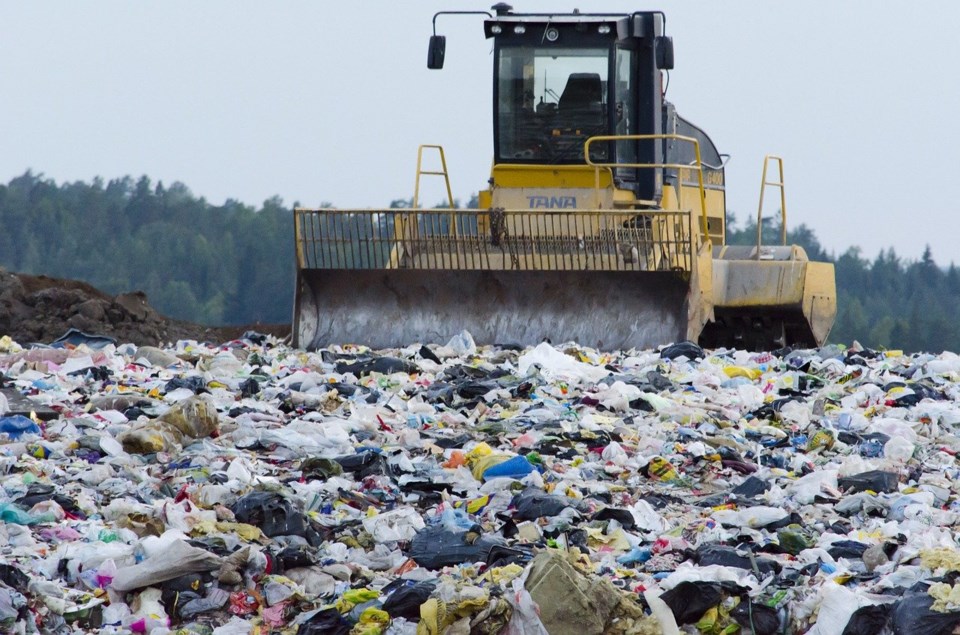City administration submitted a report about increasing landfill fees during December’s 2024 budget discussions but, because of an “honest mistake,” failed to include fees for non-residential special-handled waste disposal.
To address that oversight, administration submitted a second report during city council’s Jan. 29 regular meeting, recommending increasing the special-handled waste non-residential flat fee to $400 per load plus $100 per ton.
Council voted 6-1 in favour of the motion; Coun. Kim Robinson was opposed.
Administration expects the landfill rate increases that council approved to generate an extra $254,178.44 annually for the solid waste utility.
Commercial landfill rates have remained unchanged for the past three years, so to adjust for increased operating costs, administration recommended increasing the commercial non-resident per load flat fee, a council report said.
These rates will apply to the existing landfill effective Jan. 1.
In addressing the oversight, operations director Bevan Harlton admitted that administration had “a miss” moving between the recommendations from the budget discussions to the recommendations in the report. Also, implementing the special-handled waste non-residential flat fee meant city administration must return with a bylaw to enact the increase officially.
Coun. Doug Blanc accepted that the landfill rates were increasing but was concerned council was discussing this issue at the end of January and making the changes retroactive to Jan. 1. He didn’t appreciate it when other companies retroactively increased prices “for your convenience” and didn’t think the city should either.
“I understand there was a little glitch here, but I think we need to make sure the timelines match (and) make it effective Feb. 1 … ,” he said. “I’m not going to die on this hill, but we should have done a better job here.”
Blanc then wondered how city hall could collect money from people who had already dumped this waste, whether there was a record of those people and how long it would take to discover that information.
City hall’s normal practice is to provide a lead time when increasing fees, such as for sewer and water, which usually go up Feb. 1 of each year, said finance director Brian Acker. That’s not the case here, though, since there is a process where the municipality increases the rates at the start of the year. Therefore, retroactively applying this latest fee is required.
Harlton said city hall won’t make people pay retroactively because it won’t post the new fees until after the meeting.
Coun. Heather Eby understood the oversight, saying, “Mistakes happen. It was a busy time (during budget talks) and things were lying around the table. So, I’m not distressed that this got missed. It’s an honest mistake.”
Eby pointed out that special-handled waste includes asbestos and medical waste, so it was unlikely that people would visit the landfill daily depositing such materials.
Waste management bylaw change
Later in the meeting, council gave three unanimous readings to the waste management bylaw amendment, which officially increased residential waste collection fees and the landfill rates for 2024. They went into effect immediately since there was no opposition.
This means residential waste collection will be $30.87 per quarter this year, $31.80 per quarter next year and $32.75 per quarter in 2026.
Also, the landfill rates will be $90 per ton for residential standard waste, $12 per ton for residential half-tons or small vehicles, $18 per ton for non-residential half-tons and small vehicles and $350 per load and $90 per ton for special-handled waste residential.
Although city hall wanted to increase the waste collection rates to remain competitive with other communities, Robinson said his research showed Moose Jaw was now charging more than Regina, Saskatoon and Swift Current and was on par with Prince Albert. Therefore, he wondered why, if the utility made money in 2023, they needed to increase fees.
The next regular council meeting is Monday, Feb. 12.




